I do love reading....
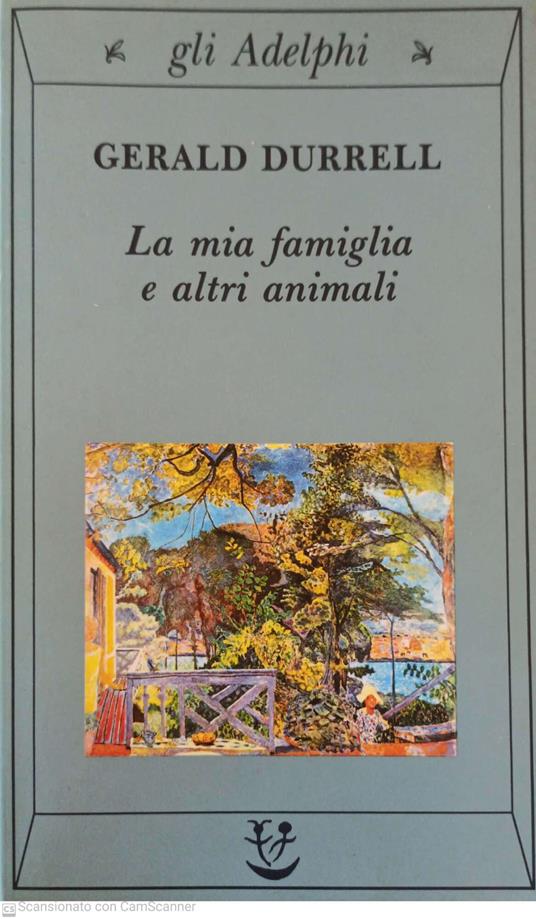
My Family and other Animals
[Gerald Durrell , 1956]
4.25/5.0
I remember browsing around the library, after being done with my studying session, in desperate need to find a title that could spark my interest. After a few minutes I stumbled upon this book, which didn't exactly possess an intriguing title, but after a Google search I could quickly enstablish I was indeed holdig what seemed to be a family saga type of book, a genre I'm quite fond of.
I didn't know exactly what to expect, but I have to say I was pleasently surprised by this little gem of a novel.
It is an autobiographical book by the British naturalist Gerald Durrell, in which he detailes the four years he and his family spent on the Greek island of Corfu, surrounded by nature and all kinds of animals.
Durrell's passion for animals started from very young, at ten years old (the age he was in the book) he seemed to have ammassed a vast knowledge of a wide variety of animals quite impressive for a boy of his age. The writing style is idyllic and gorgeous during the descriptions of the fauna and the splendid nature. The Author has the ability of conveying limpid portraits with his extremely vivid writing. I was able to paint a clear picture of the juicyness of the fruits he would greedily bite into during his little excursions, of the texture of things or the weather conditions; be it a light refreshing breeze or the intense heat and sultry atmosphere of a hot summer day.
The passages in which he detailed his domestic life, on the other hand, were humorous and engaging. It almost felt like the reader was part of the family itself.
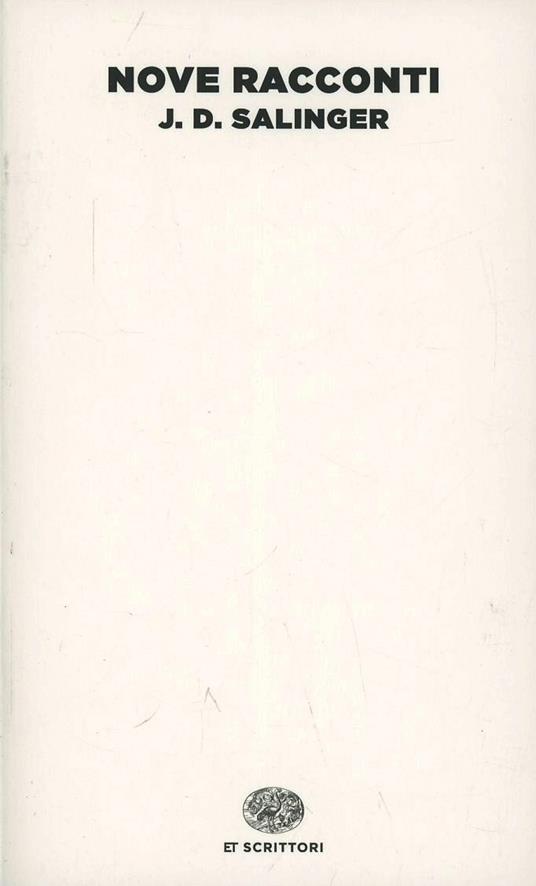
Nine Stories
[J.D. Salinger , 1953]
4.0/5.0
I remember reading my first Salinger back in middle school at the age of twelve. It was the very popular classic novel "The Catcher in the Rye", which at the time I really enjoyed.
Nine stories is a collection of short stories all connected by common themes, which are also present in other of the author's novels, such as loneliness, concealment and search for identity.
The book certainly begins with a bang! (No pun intended). What hooked me immediately was the very witty and engaging style of writing. There is a point in the story where two characters are having a phone conversation, mother and daugther. The mother is concerned for the daugther's safety, meanwhile the young woman seems to maintain a calm and nonchalant attitude toward the whole situation and doesn't even seem to give much importance to the mother's worries. All of which shines through really well thanks to Salinger's clever and impressive dialogue crafting skills. The two of them cut each other's sentences off constantly, which might sound annoying but I believe it made the conversation feel more authentic.
Another thing Salinger excells in are ambiguous endings. They usually tend to be very hit or miss for me, but with these stories I didn't have the feeling of being left there hanging. I liked how depending on how you decided to read through the lines, you could find different meanings every single time. It helped give the characters dept and nuance.
My favourte stories were "A Perfect Day for Bananafish", "For Esme-with Love and Squalor" and "Pretty Mouth and Green My Eyes".
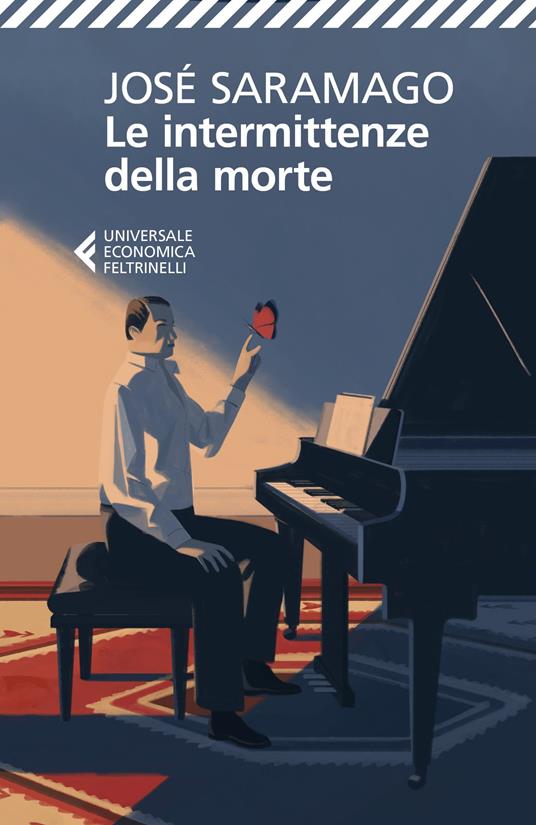
Death with Interruptions
[Jose' Saramago , 2005]
4.0/5.0
Well, it has definetly been a while hasn't it? I've finished reading this book a couple of months ago, so my memory is a bit rusty I have to admit.
This is my second Saramago. I picked up Blindness around a year ago, and rated it Five stars. I was completely blown away by it, and was excited to pick up another book from this author. His writing style has created a lot of polarizing opinions, there are those who love it and those who hate it. Frankly I was a bit taken back at first, but I quickly got used to it and can say with sincerity that I'm among those who loves his prose.
The concept of this book is quite interesting. One day, out of nowhere, at the stroke of midnight on January 1st, the people of an unnamed Country stopped experiencing death. People's initial reaction to the news was the one of joyful celebration. The citizens of that Country started viewing themselves as the chosen ones from God, and were rejoycing at the apparent victory over "mankind's longtime foe".
Soon enough the consequences of such absence started slowly arising. The first institutions that showed discontent with such sudden change of arrangement were, unsurprisingly, funeral homes and life insurance agencies; who had to come up with other strategies to mantain their businesses alive and not go completely bankrupt. It's also important to note that, while people no longer had to fear death, doesn't mean they stopped aging or getting sick, and we can only imagine the catastrophic turns such situation could take, and the threat it poses to the stabily of a well fuctioning society. The Church institution was also threated by the sudden disappearance of Death. While at fist people thought of the situation as a gift from the Almighty, as time passed by the whole system of religion started facing a lof of scrutiny and questioning. Considering Death was the only way humans could reach the Kingdom of God, the absence of such important factor was deemed extremely contradictory with the preachings of the Church.
The situation only worsened from then on, and the Country fell into complete chaos, until one day Death suddenly comes back into people's lives. From here on the book takes a different turn, we are now seeing this from the perspective of Death itself, as in the entity that gets personified. We follow them into what seems to be a love story. The last chapters of this book were my absolute favorite and kept me hooked until the very last line: "The following day, no one died".
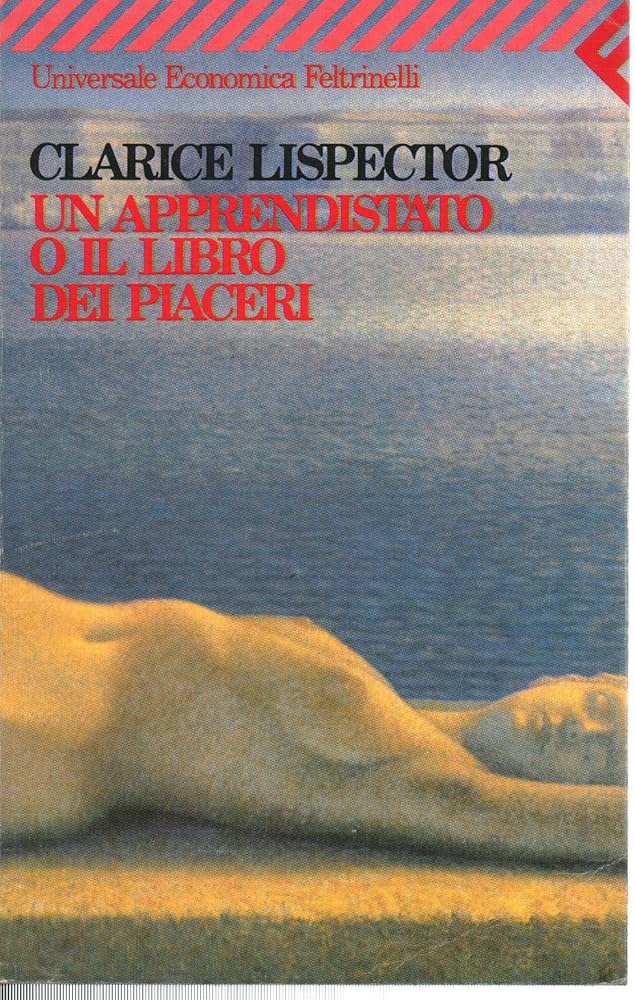
An Apprenticeship Or The Book Of Pleasures
[Clarice Lispector , 1968]
4.0/5.0
I remember coming across a video by the YouTube channel Alana Estelle a couple of months ago during my lunch break. It was a review of the book "Near to the Wild Heart" by Clarice Lispector. Ever since then this author's name has never left my mind, and I promised myself to read at least one of her works before the end of the year. So I did, a couple of weeks ago precisely.
The book was captivating from the very first page. It seems like Lispector is using some variation of the stream of consciousness. I found the fact that it started with a comma particularly interesting , almost as if the story has no real start nor end , but it's just a fragment of our protagonist's chaotic and upset mind.
The novel has no real plot , it's more of a character study of Lori (the protagonist ) . We, the reader, follow the ups and downs of her journey to find her real authentic self. Such need sparked from her newly enstablished relationship with Ulysses , a philosophy teacher who plays the role of love interest in this story.
Ulysses, despite being totally unbearable and full of himself , is able to bring Lori on the road of introspection and self reflection , helping her see things in a different light and bringing life into her rather idle and a bit pathetic existence.
I don't think I have much in common with Lori, but I feel like a lot of the challenges she faces are a sort of universal human experience we can all relate to. I find some passages in this book to have been written in an absolutely gorgeous way , specifically the ones during Lori's night reflections and her "Sea Baptism".
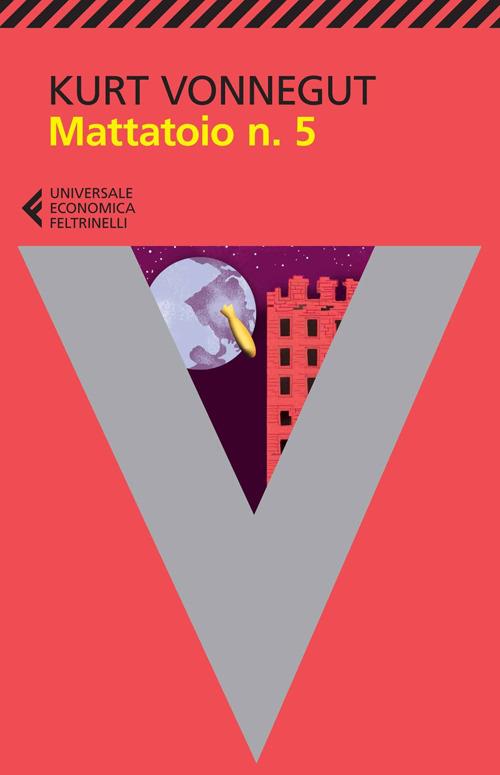
Slaughterhouse Five
[Kurt Vonnegut , 1969]
4.5/5.0
What an interesting read this was! I remember partially reading the Book's Synopsis and thinking to myself "Yeah, this sounds like every other book about the II World War, but let's try it out anyway." Glad I did.
I will start by saying that the first chapter of this book is an absolute banger! I just think it was very well crafted and an excellent way to get people hooked to the story.
The second chapter, on the other hand, slightly killed off the momentum; still I acknowledge how necessary it was in order to create build up for the events that were about to follow.
The novel tells the story of Billy Pilgrim, a complete average man. Very tall and slim , weak , not particularly smarth nor charismatic ; literally just some guy.
At the young age of 21 he registered for the mandatory military draft. The narration starts with him and other three boys wandering around an unknown forest in Germany , trying to hide from the excellent nose of their enemies' German shepherds.
What seems like a perfectly normal story , suddenly welcomes into its narrative some sci-fi elements. Apparently this very regular guy is somehow able to time travel and was once also kidnapped by aliens. It sounds a bit ridiculous , but nonetheless this remains a very serious book.
You often can't make tragedy without a bit of humour and Slaughterhouse Five is the perfect example of that.
I personally think these narrative devices tell a deeper story than the one on the surface. For instance the time traveling can be seen as a way to represent the reality of those who sufferered from PTSD after living such awful events.
Billy is a deeply tragic character while simultaniously being a sort of caricature. It's an odd combination , but it works out perfectly.
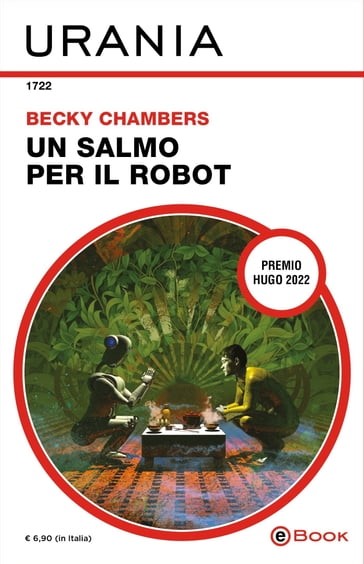
A Psalm For The Wild Built
[Becky Chambers , 2021]
4.0/5.0
Here we go , one of Goodreads IT books !
I remember having to wait several weeks before being able to borrow this book from the library, and frankly the premise of the story wasn't particularly interesting to me. I guess I fell for the peer pressure and I'm glad I did.
Someone on twitter briefly described the novella as "a person suddendly descovering the joy of going on a hike" , I thought this was an hilarious way of putting it, and couldn't agree more.
The story takes place in a seemingly futuristic version of our world, but with a different name . Futuristic uh ? You are probably thinking flying cars , spaceships , fifty metres tall skyscrapers and most importantly robots . We shall not forget the robots !
Well actually in this universe robots seem to have had a collective existential awakening , stopped working for humans and left everything to go live freely into the wild.
The protagonist of our story is a monk named Dex. ( The most prominent form of sprituality in this futuristic society seems to be some sort of politheist religion , very reminiscent of Buddhism). Well Dex is going through a very serious existential crisis and decides it was time to leave the city once and for all. To do what you ask ? Well to become a tea-serving monk with the job of traveling from place to place , and listen to people's concerns and afflictions while serving them a cup personalized tea.
This change of career , even if gratifying at first , is not enough to fill the hole in Dex's heart ; and that's when our monk decides to leave everything behing again and run away into the wilderness (sounds familiar ?). Not any type of wilderness though , a wilderness that has not been tempered with by humans for centuries at that point. That's where he meets an interesting robot with a different perspective of what it means to be alive.
The writing style was simple to get by and the world building was done in a very clever and neat way. The author didn't give away all the details in the first chapter , but organically gave out more and more information about the fictional society as the story progressed. I was very pleasently surprised by this book, and I think this is an excellent in between read with a light and heartwarming story.
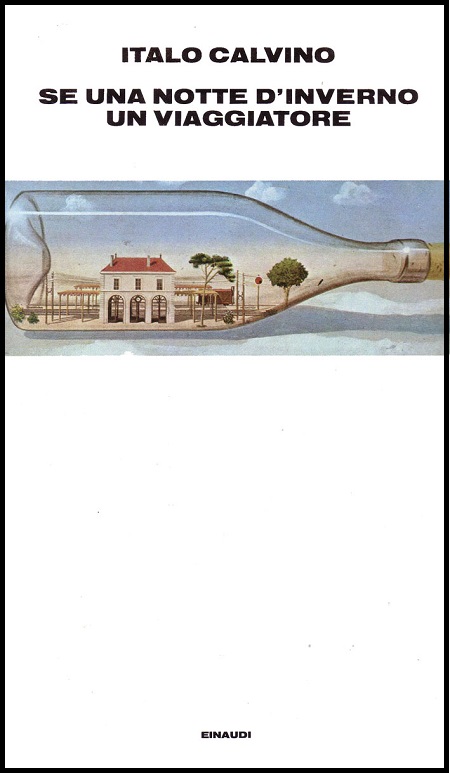
If On a Winter's Night a Traveler
[Italo Calvino , 1979]
4.5/5.0
I picked up this book on a whim , it wasn't even on my TBR list , but notheless I ended up absolutely loving it. Italo Calvino is considered among some of the greatest italian authors of his time and his work has been the focus of many literature lessons for the average italian high school student. Me included, hence why I was already familiar with his name and style to some degree.
The main protagonist of the story is a male reader who, after learning of the release of Italo Calvino's new book titled: "If On a Winter's Night a Traveler", decides to purchase it from his local book store.
The reading proceedes in a seemingly smooth manner until he realizes the book contains a publishing defect that forces him to interrupt the story. He later on returns to the book store and is informed that the error is persistent in pretty much all of the copies of the book , and that the publishing company apologizes for mixing up pages from two complete different works.
It is at this moment the reader meets another reader , a woman named Ludmilla. He's immidiatly drawn to her demeanor and looks, and decides to approach her. As a result of the publishing defect , they both decide to pick up the other book from which pages were mixed up with the pages of Calvino's book instead; but little did they know their reading would be interrupted time and time again for a variety of reasons?
Calvino's writing style is extremly witty and engaging . The book ends up taking such absurd turns near the end that grants the novel a very well crafted humoristic touch. Despite the absurdity of it all, I think the ending ties everything well together by also giving us a sort of "full circle" moment.
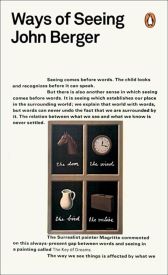
Ways of Seeing
[John Berger, 1972]
3.5/5.0
This book has been laying around my room for a little over a year now, and finally, at the end of last month, I decided to give it a shot.
I usually NEVER do this, but for this book I read a good number of reviews on Goodreads out of curiousity. The opinions were quite devided and I thought that was pretty intriguing. I tend to find books with polarizing reactions the most interesting, but for Ways of seeing I think I might be part of the minority who finds themselves in the very middle.
The book consists of seven numbered essays; four of them use words and images, the other three use only images.
All of them dealt with somewhat interesting topics, but I found number 3 (about the depiction of women ) and number 7 ( about publicity) to be the most remarkable ones.
While reading number 3 I thought of the following quote by Margaret Atwood :
"Pretending you're unseen, pretending you have a life of your own, that you can wash your feet and comb your hair unconscious of the ever-present watcher peering through the keyhole, peering through the keyhole in your own head, if nowhere else. You are a woman with a man inside watching a woman. You are your own voyeur."
Subsequently I thought of another phrase a lot of these modern misogynystic podcasts absolutly love to quote :
"Women are meant to be seen , not heard"
I just found it interesting how people with opposing views can somewhat reach to the same conclusion (naturally the intentions behind the statements are vastly different). Still while reading the book I didn't have a clear understanding of Berger's views on the matter. His tone is very "matter of fact" but he also doesn't shy away from voicing his opinion once in a while , so I'm slightly dissatisfied by the superficiality of this chapter ; I was expecting a deeper analysis.
(The books discussion range is also strictly and annoyingly eurocentric , but I digress).
Essay number 7 was definetly my favourite and I felt it was the one that aged the best among the rest.
Publicity has never been more inescapable than now . The stark contrast between images and videos depicting the ongoing tragedies of the world, followed by images despicting the glamour and wealth of celebrities is becoming increasingly more jarring.
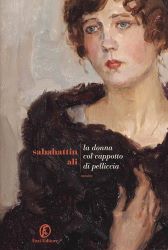
Madonna in a fur coat
[Sabahattin Ali, 1943]
4.0/5.0
I was inspired to read this book after watching one of 'Sophia Reads Books' monthly wrap ups videos on youtube . She described it as a 'modern classic' and after looking up the plot I was intrigued.
I lent my copy from one of my local libraries , it's translated in italian. The book is relatively short, a little over two hundred pages , but nonetheless very intense.
This might seem a bit random , but I couldn't help but be reminded of my High School Philosophy teacher while reading the introduction of the main character Raif Efendi , and in a way I related to the narrator , because just like he did I always felt a calm but strong curiousity on this teacher's regard.
The book contains some narrative elements I'm usually not very found of. For instance our female protagonist Maria tends to talk in monologues quite a lot , but Sabahattin Ali's writing is so gorgeous and pristin ,to the point I ended up finding it tasteful at the end.
There are some points toward the end in which I felt the narrative was getting dragged on for a bit too long , but despite those small moments the book manages to sweep you away completely. Effendi is not a particularly interesting individual yet you end up sympathizing with him very deeply.








